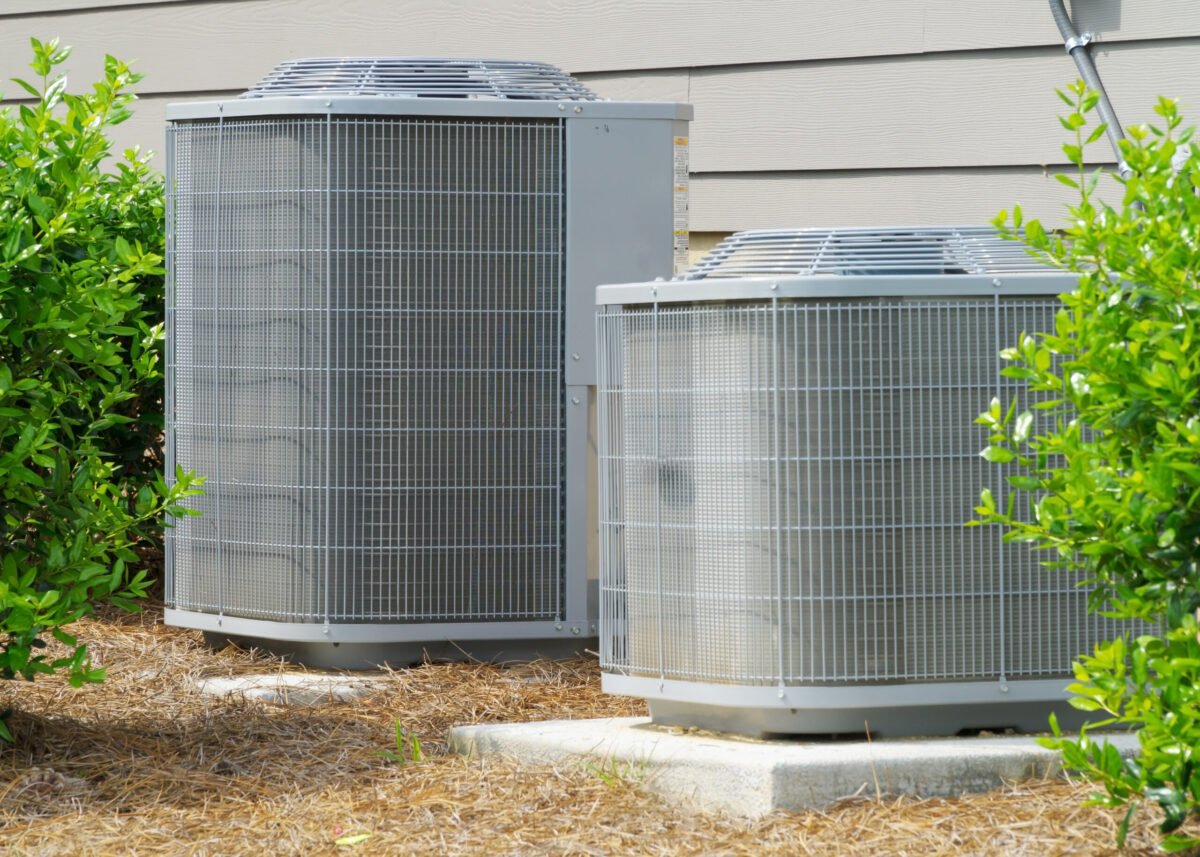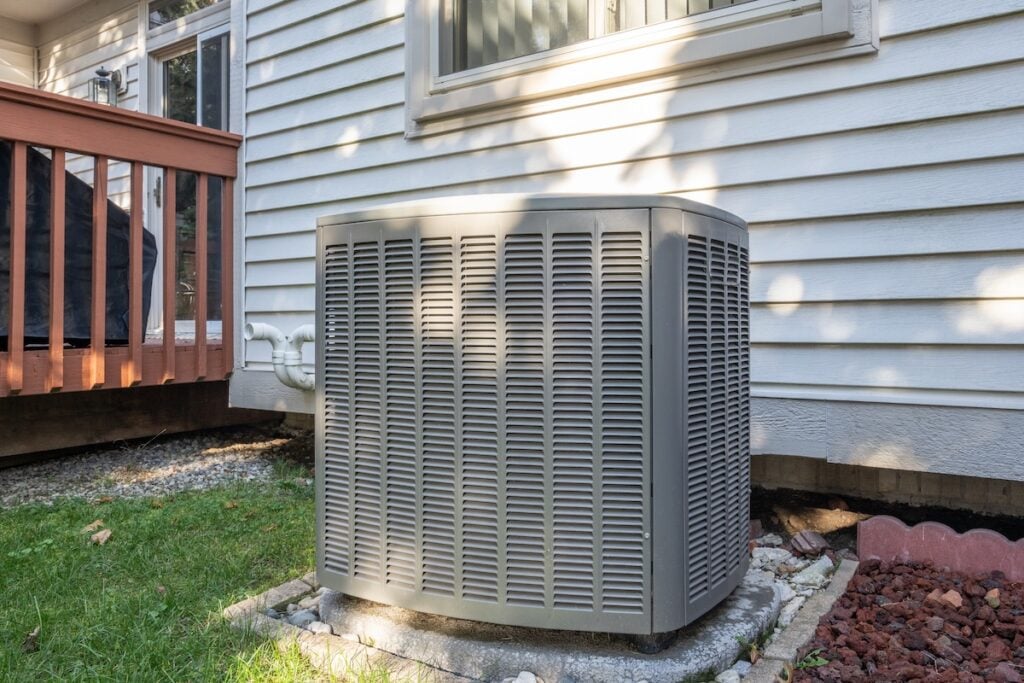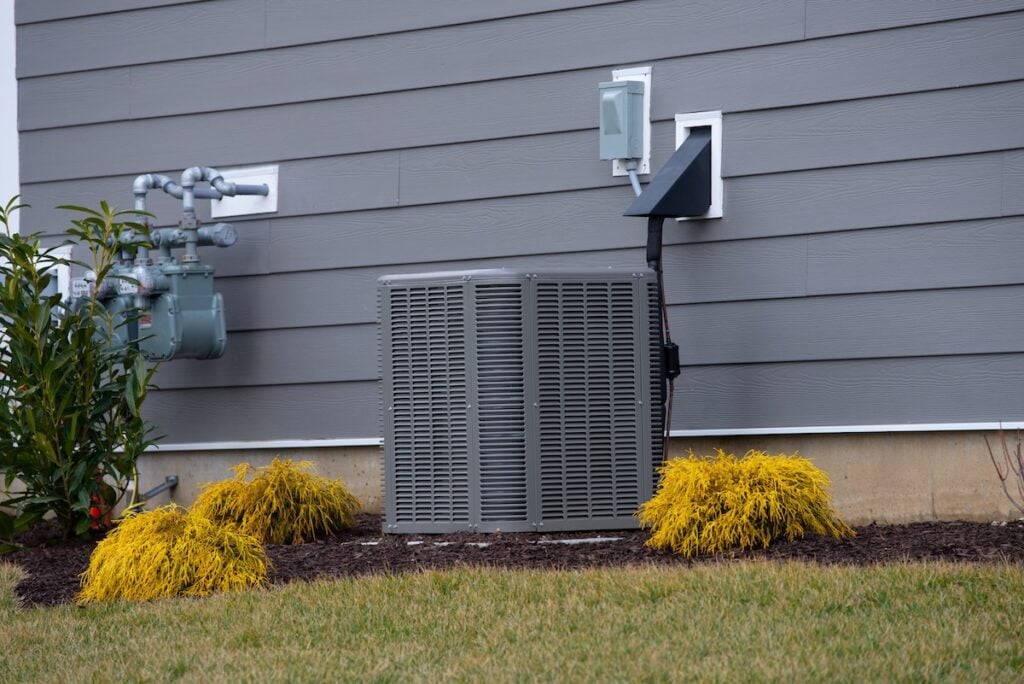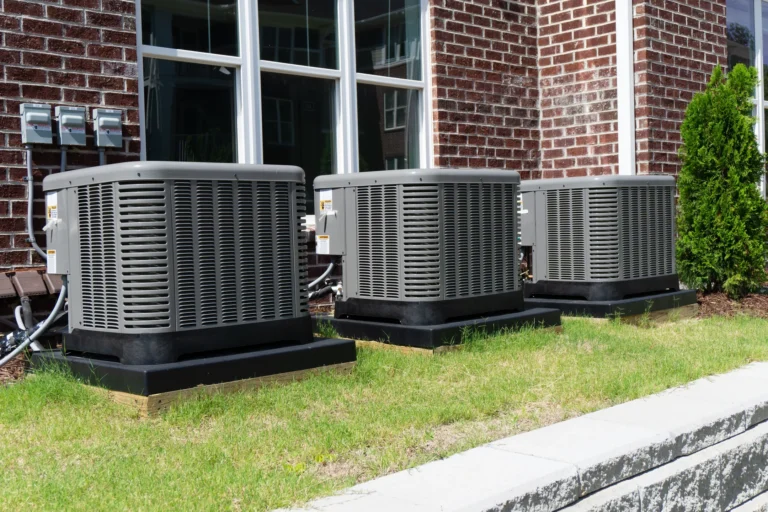
What Is an AC Condenser? (Maintenance, Replacement & More)
Your air conditioning system works hard to keep your home comfortable, but do you know what makes it all possible? The AC condenser plays a crucial role in cooling your home, yet many homeowners don’t fully understand what it does or how to maintain it properly.
Understanding your AC condenser can help you make informed decisions about maintenance, repairs, and replacements. Whether you’re dealing with a system that’s not cooling effectively or planning for future upgrades, knowing the basics of this essential component will save you time, money, and discomfort.
This guide covers everything you need to know about AC condensers, including:
- What an AC condenser is and how it works
- Common problems and warning signs
- Maintenance tips to extend its lifespan
- When replacement becomes necessary
- Professional installation and repair services
🤔 What Is an AC Condenser?

An AC condenser is the outdoor unit of your air conditioning system that releases heat from your home to the outside air. Located outside your house, this metal cabinet contains several key components that work together to cool the refrigerant and complete the cooling cycle.
The condenser unit houses the condenser coil, compressor, condenser fan, and various electrical components. When warm refrigerant from inside your home reaches the condenser, the unit’s fan pulls outside air across the condenser coils while the compressor pressurizes the refrigerant. This process removes heat from the refrigerant, transforming it from a gas back into a liquid that can return inside to absorb more heat.
Key Components of an AC Condenser
The condenser unit contains several important parts that work together:
- Condenser Coils: These copper or aluminum coils allow heat transfer from the refrigerant to the outside air. Clean coils are essential for efficient operation.
- Compressor: Often called the heart of the AC system, the compressor pressurizes the refrigerant and pumps it through the system.
- Condenser Fan: This fan pulls outside air across the condenser coils to help remove heat from the refrigerant.
- Electrical Components: Including contactors, capacitors, and control boards that manage the unit’s operation.
👉 How Your AC Condenser Works

The cooling process begins when warm air from your home passes over the evaporator coil inside your house. The refrigerant in these coils absorbs heat from the air, turning from a liquid into a gas. This warm, gaseous refrigerant then travels to the outdoor condenser unit.
Once the refrigerant reaches the condenser, the compressor pressurizes it, making it even hotter. The hot, pressurized refrigerant flows through the condenser coils while the condenser fan pulls outside air across these coils. This process allows the refrigerant to release its heat to the outside air and condense back into a liquid.
The cooled liquid refrigerant then returns to your home through the refrigerant lines, where it passes through an expansion valve that reduces its pressure and temperature. The cycle begins again as this cool refrigerant enters the evaporator coil to absorb more heat from your indoor air.
Common AC Condenser Problems
Several issues can affect your condenser’s performance and efficiency. Recognizing these problems early can prevent more serious damage and costly repairs.
- Dirty or blocked condenser coils: Debris like grass clippings, leaves, dirt, and pet hair can accumulate, preventing heat release, increasing energy bills, and risking component failure.
- Refrigerant leaks: Leaks lower cooling capacity and can damage the compressor, with signs like ice on the unit, reduced cooling, or hissing sounds.
- Electrical issues: Faulty components like capacitors or control boards can stop the unit from starting, cause frequent cycling, or create unusual noises.
- Compressor problems: A failing compressor can result in loud noises, reduced cooling, or complete system failure, often due to poor maintenance or refrigerant issues.
- Fan motor issues: A failed fan motor prevents proper heat release, leading to overheating, shutdowns, and damage to other components.
✅ 5 Key Benefits of a Well-Maintained AC Condenser
Proper condenser maintenance provides significant advantages for your comfort, wallet, and peace of mind:
1. Improved Energy Efficiency
A clean, well-maintained condenser operates more efficiently, reducing your monthly energy bills. When condenser coils are clean and components function properly, your system doesn’t have to work as hard to cool your home.
2. Extended System Lifespan
Regular maintenance prevents small problems from becoming major repairs. A well-maintained condenser can last 15-20 years, while neglected units may fail much sooner.
3. Better Indoor Comfort
When your condenser operates efficiently, it maintains consistent temperatures throughout your home. You’ll experience fewer hot spots and more reliable cooling performance.
4. Reduced Repair Costs
Preventive maintenance costs far less than emergency repairs. Regular service helps identify potential problems before they cause system failures or damage expensive components like the compressor.
5. Improved Indoor Air Quality
A properly functioning AC system better controls humidity levels in your home, reducing the growth of mold, mildew, and other allergens that thrive in humid conditions.
💡 AC Condenser Maintenance Tips

Regular maintenance keeps your condenser running efficiently and helps prevent costly repairs. While some tasks require professional service, homeowners can perform several maintenance activities safely.
Monthly Maintenance Tasks
Check your condenser unit monthly during cooling season. Look for signs of damage, unusual noises, or debris accumulation. Ensure the area around the unit remains clear of vegetation, which should be trimmed back at least two feet from all sides of the condenser.
Replace your indoor air filter monthly or according to manufacturer recommendations. A dirty filter restricts airflow, forcing your condenser to work harder and potentially causing system damage.
Seasonal Maintenance
Before each cooling season, remove any debris that accumulated around your condenser during the off-season. Gently rinse the condenser coils with a garden hose to remove surface dirt and debris. Always turn off power to the unit before performing any maintenance.
Check the refrigerant lines for signs of damage or wear. These insulated lines should be in good condition without cracks, tears, or missing insulation.
Professional Maintenance
Schedule professional maintenance at least once per year, preferably before the cooling season begins. Professional technicians can perform tasks that require specialized tools and knowledge, including:
- Deep cleaning of condenser coils
- Checking refrigerant levels and pressures
- Testing electrical components and connections
- Lubricating moving parts
- Calibrating thermostats and controls
- Inspecting and tightening all connections
🛠️ When to Consider AC Condenser Replacement
Even with proper maintenance, condensers eventually need replacement. Several factors indicate when replacement becomes more cost-effective than continued repairs.
Age of the Unit
Most condensers last 15-20 years with proper maintenance. If your unit is approaching or exceeding this age range and experiencing frequent problems, replacement may be your best option. Newer units offer improved efficiency and reliability compared to older models.
Frequent Repairs
If you’re calling for repairs multiple times per year, the cumulative costs may exceed the value of continued operation. As a general rule, if repair costs exceed 50% of the unit’s replacement cost, consider replacement instead.
Rising Energy Bills
Older or failing condensers consume more energy to provide the same cooling. If your energy bills have increased significantly without corresponding changes in usage, your condenser may be losing efficiency.
R-22 Refrigerant Phase-Out
Older systems using R-22 refrigerant face increased service costs as this refrigerant is being phased out. Replacement with a newer system using more environmentally friendly refrigerants can provide long-term cost savings.
Inadequate Cooling Performance
If your system struggles to maintain comfortable temperatures despite proper maintenance and repairs, it may be undersized for your home or failing. A new, properly sized system can provide better comfort and efficiency.
👨🔧 Trust the Experts for Your AC Condenser Needs
When it comes to AC condenser installation and service, trust the team at Bob’s Air Conditioning to get the job done right. With over 40 years of experience serving Florida homeowners, we’ve built a reputation for reliability, professionalism, and top-notch service. Our licensed, bonded, and insured technicians are committed to ensuring your AC system operates efficiently and keeps your home comfortable year-round.
From routine maintenance to complete system replacements, we provide personalized solutions tailored to your needs. Don’t leave your comfort to chance—contact Bob’s Air Conditioning today to schedule your installation or service. Experience the difference of working with a team you can rely on!
Ultimate Comfort Awaits


